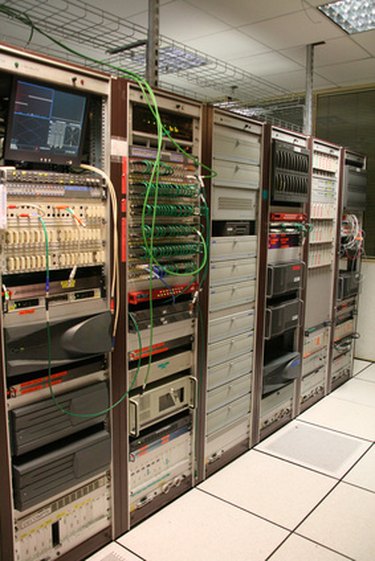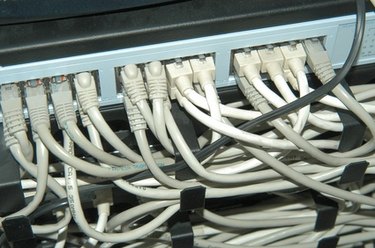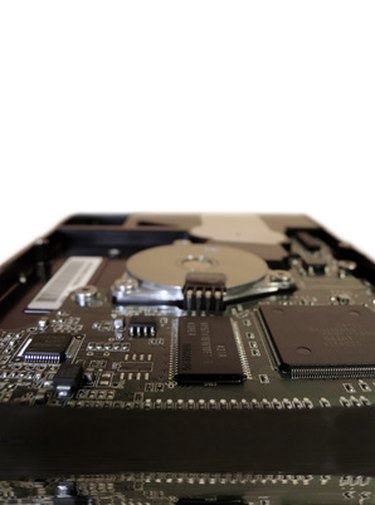
The function of a computer server is to store, retrieve and send or "serve" files and data to other computers on its network. Many businesses of all sizes use a local network or "intranet" in their office facilities. On a larger scale, the world-wide computer network we know as the "Internet" depends upon a large number of servers located around the world. The files, data, and functionality of a given website are based on web servers.
Developments Over Time
At one time, a company or webmaster would have hosted an Internet website with a locally based computer acting as a web server. More recently, factors from performance and reliability to economics have led to the migration of most Internet websites to server clusters located in large data centers. Data centers are secure, climate-controlled buildings filled with server stacks featuring redundant data storage and a backup power supply. It is still common for many businesses to host their own intranet network on a local server.
Video of the Day
Considerations

Any network, whether it's local or global, depends upon a server computer (or several) to store and retrieve data and files. The server's physical and software configuration must take a number of factors into account. For example, several individual computers on the network might make a request for the same file at essentially the same time, so the server must be equipped with hardware that has high-speed capabilities; and it must be running software that is designed to support multiple simultaneous file retrieval operations.
Physical Properties

While the physical properties of different servers may vary greatly, many computer servers (especially those used in large data centers) are flat, rack-mountable rectangular devices without any interface for a mouse, keyboard or monitor screen. Servers typically have high-powered fans to prevent overheating.
Operating Systems and Server Software
A given computer server might run any one of several operating systems, including Microsoft Windows Server, Mac OS X Server or an open-source operating system such as Ubuntu Server or FreeBSD.
The server's operating system must run special server software. While by far the majority of computer servers run the open-source Apache Server software, others use proprietary systems such as Windows IIS or Adobe ColdFusion. This software is involved in the retrieval and distribution of files stored on the server. Additional server-side programs (such as ASP or Java) may be used to process those files before the result is sent back to the requesting computer.
Database Access

Providing database access is one of the most important functions of a computer server. A relational database is a compact and efficient information storage structure, allowing rapid access to large volumes of data.
In an office setting, a database may be used to store customer contact details and order information, as well as shipping and payment records. By accessing the server over a local network, several employees can retrieve and update information from the database in real time throughout the day as business is conducted.
On the Internet, a database may be used to store a website's actual content, user login authentication information and sometimes order processing records. There are several popular database systems, including Oracle Database, Microsoft's SQLServer and the open-source MySQL database.